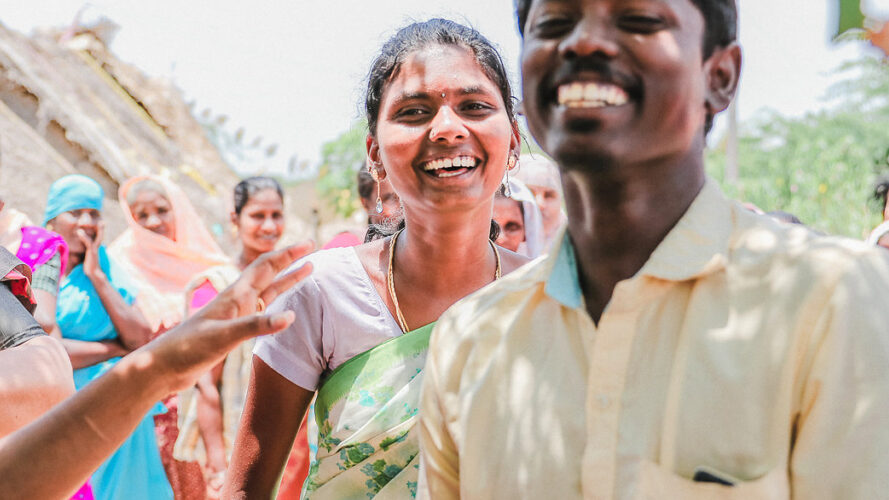Three Guilty for Holding Slaves in an Indian Rock Quarry
Slavery
One south Indian court sent a powerful message to modern-day slave owners this week, as a judge convicted three men for enslaving families at a ruthless rock quarry. All three have been sentenced to 11 years and 9 months in prison for their crimes.
Back in February 2012, IJM assisted local authorities in rescuing 42 people from this isolated quarry. The victims had faced constant violence as they worked in hot and grueling conditions—some for up to eight years.
One man named Arul remembers the quarry owner screaming at him, “You cannot go anywhere! Even if you die, you must only be with me and work for me. If you go anywhere, I’ll come searching for you.”
As the rescued survivors got medical care and official documents to mark their freedom, the three suspects who enslaved them were taken into custody and denied bail for a week as police built a legal case.
Many powerful slave owners are never held accountable, so even this week of prison time was a significant change in the justice systems’ response.
From there, IJM chose to provide minimal legal support in the trial. Instead, our team provided ongoing trainings to police, prosecutors and judges about the severity of bonded labor slavery. Initiatives like this help improve the way all cases move through the justice system—not just IJM’s rescues—and contribute to our larger program to end bonded labor in Tamil Nadu state.
After a six-year trial led by trained public prosecutors, the men were finally found guilty on October 8, 2018. The judgement has already been shared widely across the state—sending a clear message about the government’s stance on slavery.
“The judgement is a clear indication that bonded labor is recognized as a crime and judiciary in Tamil Nadu has zero tolerance for it,” says Merlin Freeda, IJM’s director of operations in Chennai. “It also creates deterrence among perpetrators who think they can easily get away with crimes like this.”
She adds joyfully, “Such cases do bring hope that ending impunity is possible and justice for the poor and oppressed will become unstoppable.”
The anti-slavery movement is also being fueled by survivors themselves, including by Arul from this case. He and his wife, Pachayamma (pictured above), have become active members of the Released Bonded Laborers Association (RBLA) which helps rescue and support survivors like themselves.
Pachayamma remembers how scared they had been of the slave owner, and how they never thought he would be found guilty after the defense attorney accused them of lying in the trial. Today, however, she’s very happy to see the verdict at last, and says her faith in the justice system has been restored.
When Arul compared his present life to his past, he said, “While I was in bondage, I was like a prisoner stuck in jail. Now I am like a free bird, enjoying life. Life for me is full of joy now.”